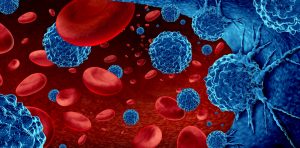
BMS signs cancer deal
pharmafile | May 28, 2014 | News story | Research and Development, Sales and Marketing | ASCO, AstraZeneca, BMS, Cancer, Merck, Roche, cytomx, oncology
Bristol-Myers Squibb has partnered with CytomX Therapeutics to discover and develop new immuno-oncology candidates using the latter’s Probody Platform technology.
The companies believe studying Probodies – monoclonal antibodies which remain inert in healthy tissue but are activated as part of the disease – could unlock new ways of treating various cancers.
BMS is paying $50 million up front, plus research funding, for which it will gain exclusive worldwide rights to develop and commercialise Probodies for up to four oncology targets.
These include immune inhibitory checkpoint receptor CTLA-4 – and at a possible $298 million in milestones for each, the deal could be worth more than $1.2 billion to CytomX, before royalties are taken into account.
“Immuno-oncology offers a tremendous opportunity to change how cancer is treated, and BMS is committed to advancing our immuno-oncology drug research and development for patients living with the disease,” says Francis Cuss, BMS’s chief scientific officer.
“The Probody Platform has the potential to broaden discovery of innovative therapies, and the collaboration with CytomX reflects our continued leadership in immuno-oncology,” he adds.
The deal is subject to the usual regulatory approvals and Sean McCarthy, chief executive of CytomX says: “We are thrilled to announce our first cancer immunotherapy collaboration with an unequivocal leader in this field.
“This strategic alliance with BMS demonstrates that our innovative Probody Platform has the potential to enable novel therapies in this transformational area of cancer research and development.”
CytomX already has similar strategic collaborations in other areas with Pfizer and ImmunoGen.
A number of major players in cancer are set to showcase rival immunotherapy data at this year’s five-day American Society of Clinical Oncology (ASCO) meeting in Chicago, which kicks off at the end of this week.
It will feature presentations based on more than 5,000 abstracts, with companies such as Merck, Roche and AstraZeneca – as well as BMS – working on drugs designed to boost the immune system’s capacity to fight tumours.
The treatments in question, known as anti-PD1 or anti-PDL1 therapies, target the protein that cancers deploy to evade the body’s natural immune defences.
Adam Hill
Related Content

Roche’s Alecensa approved by FDA as lung cancer treatment
Roche has announced that the US Food and Drug Administration (FDA) has approved Alecensa (alectinib) …

Genentech’s Columbi meets primary endpoint in phase 3 trial for lymphoma treatment
Genentech, part of the Roche Group, has announced that its phase 3 STARGLO trial has …

TILT Biotherapeutics shares data on TILT-123 with Keytruda for ovarian cancer treatment
TILT Biotherapeutics has announced promising preliminary safety and efficacy data from its ongoing phase 1 …







